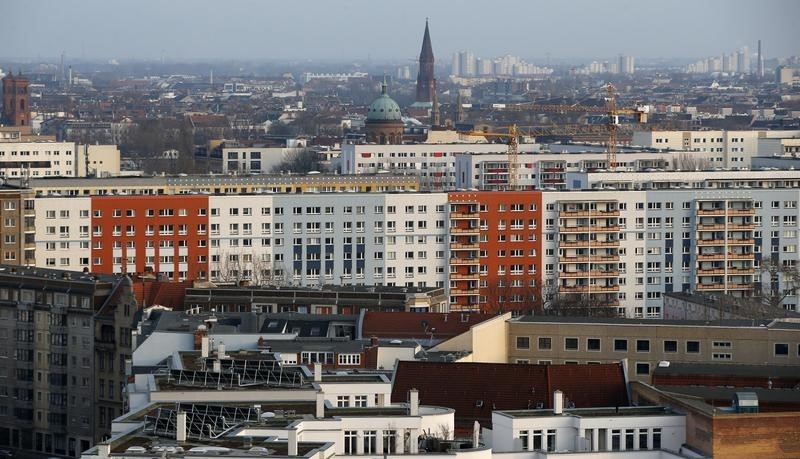(Repeats with no changes to text)
* Germany is Europe's biggest student market, and growing
* Few students so far live in purpose-built housing
* 2016 student housing investment to reach 1 bln euros
* British companies entering market, acquire portfolios
By Tina Bellon
DARMSTADT, Germany, Aug 11 (Reuters) - Germany's growing popularity among international students and a lack of small apartments for them to rent is also attracting overseas investors tempted by yields not available elsewhere.
Student housing has traditionally been highly subsidised in Germany, Europe's biggest market and home to around 2.9 million students, roughly a quarter of whom are from outside Germany.
But unlike some other western countries, students have tended to rent private flats or shared apartments off-campus and only around 11 percent live in designated accommodation, a trend analysts and investors expect to change in the next few years.
German student housing offers investors annual yields of 5 to 6 percent, far exceeding a 0.1 percent return on AA-rated 5-year German corporate debt and the negative returns on Germany's 10-year government bonds.
Such returns mean that investment transactions in Germany, which have hardly surpassed 300 million euros ($333 million) in recent years, are estimated by analysts to rise to about 1 billion euros in 2016.
Meanwhile, the international student population is rising by 5 to 10 percent a year, according to education ministry data, and private companies are stepping in to fill the housing need.
Furnished micro-apartments starting at just 16 square metres (172 square feet) are exempt from stringent German rent control, allowing investors to charge more than twice the average local rent and three times a publicly subsidised student home.
"Student housing is the most yield-generating home segment for investors per square metre and the strategy is to make it so posh that the price becomes an afterthought for the tenants," Thomas Beyerle, managing director of real estate consultancy group Catella, told Reuters.
ALL MOD CONS
Proximity to campuses, furniture and amenities such as high-speed Internet and communal lounges justified the higher price, two students who declined to give their names told Reuters in Darmstadt, a town close to Frankfurt, at a student home that was acquired by British Global Student Accommodation (GSA) in July.
Catella advised GSA, which manages 50,000 student rooms worldwide, in its first purchase of a 1,500-bed German student housing portfolio.
Part of it is the Darmstadt property, housing around 530 students in three modern, inter-connected buildings that feature white, sleekly furnished apartments, polished courtyards and two roof terraces overlooking the city and nearby mountains.
GSA now owns properties in four cities including Frankfurt and Dresden, runs a fund bundling student housing and plans to expand to 10,000 beds in Germany within five years.
Other British student housing firms like Crosslane are also scrambling for space in Germany's consolidated residential market, hoping student housing will reach UK levels.
Investors pumped a record $7.4 billion into Britain, Europe's biggest student housing market, last year, consultancy Jones Lang LaSalle (JLL) says, and while the German market remains far smaller, all signs point towards growth.
"Germany's student housing market is similar to the maturity of the UK market 10 to 15 years ago," said Stuart Osborn, JLL's associate director in the UK. "Rents in Germany will continue to grow rapidly, just as the product evolves and a broader range of students becomes familiar with purpose built student housing."
Singapore's sovereign wealth fund GIC Pte Ltd GIC.UL , which is partially funding GSA's German expansion, declined to comment on the investment. Other investment funds did not respond to requests for comment. ($1 = 0.9018 euros) (Editing by Alexander Smith)
